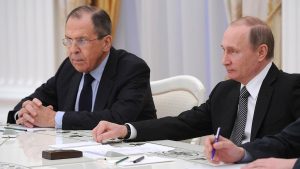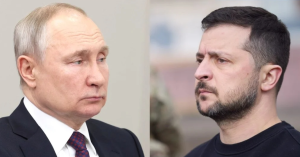Russia’s secret sabotage unit is waging a covert war in Europe, targeting NATO with assassinations, espionage, and cyberattacks.
Others are reading now
Russia has quietly established a new covert military unit within its intelligence service to conduct sabotage, assassinations, and espionage across Europe and beyond, The Wall Street Journal reported on February 15.
A Shadowy Force Operating in Europe
Western intelligence agencies have identified this unit, known as the Russian Department of Special Tasks (SSD), as an arm of Russia’s GRU military intelligence.
The SSD, headquartered in Moscow, is believed to be responsible for a string of recent acts of sabotage, including attempts to plant incendiary devices on aircraft and assassination plots targeting Western defense executives.
According to intelligence officials, the Kremlin created the SSD in 2023 in direct response to Western military aid to Ukraine. Russia reportedly sees NATO countries as legitimate targets, blaming the West for attacks on Russian infrastructure, including the mysterious Nord Stream pipeline explosion and Ukraine’s long-range missile strikes.
Also read
The SSD has taken over key operations previously handled by the infamous GRU Unit 29155, which Western authorities linked to the 2018 poisoning of former Russian double agent Sergei Skripal in the UK.
Who’s Behind the SSD?
The secret unit is reportedly led by Colonel General Andrey Averyanov and Lieutenant General Ivan Kasianenko, both seasoned figures in Russia’s intelligence and military operations.
Averyanov, a veteran of the Chechen wars, was previously implicated in the 2014 Czech ammunition depot explosion and played a role in Russia’s 2014 annexation of Crimea. Kasianenko, his deputy, has a history of working under diplomatic cover in Tehran and helped facilitate Russian-Iranian military cooperation.
He has also been linked to the Skripal poisoning and the takeover of Wagner Group operations in Africa following Yevgeny Prigozhin’s death.
A Growing Threat to NATO and the West
Western security agencies believe the SSD has already carried out multiple sabotage missions, including an attempted assassination of a German arms manufacturer CEO and efforts to smuggle explosives onto cargo planes.
Intelligence sources also suspect Russian agents are recruiting spies within European institutions, particularly targeting officials in Ukraine, Serbia, and developing nations that remain neutral or friendly to Moscow.
The European Union and the United States have already sanctioned SSD operatives, accusing them of orchestrating cyberattacks, targeted killings, and acts of terrorism against NATO allies.
The SSD’s activities represent an escalating campaign of hybrid warfare, prompting growing concern within NATO. Some officials believe the West needs to adopt a wartime mentality to counter these covert Russian threats.
James Appathurai, a senior NATO official, warned that Russia is waging a broader strategic campaign that could escalate if left unchecked.
Meanwhile, Denmark’s Defense Intelligence Agency (FE) recently warned that Russia could be ready for a large-scale war in Europe within five years if NATO does not take decisive action.








